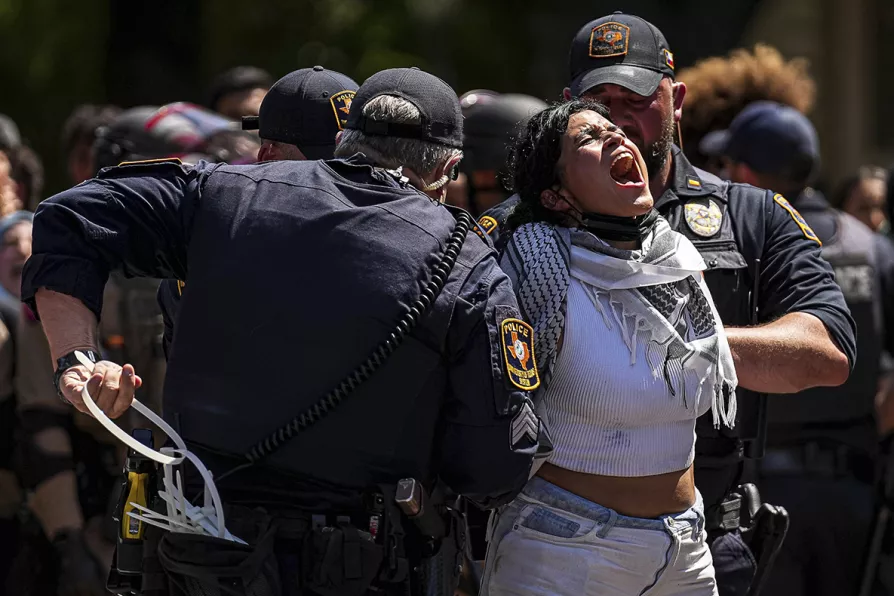The Mandelson scandal reveals a political settlement in which democratic choice is curtailed and the power of markets eclipses the will of voters – only the left can challenge this, writes JON TRICKETT MP

 A pro-Palestinian protester yells ‘Free Palestine’ as she is handcuffed by University of Texas at Austin police on the campus, April 29, 2024, in Austin, Texas
A pro-Palestinian protester yells ‘Free Palestine’ as she is handcuffed by University of Texas at Austin police on the campus, April 29, 2024, in Austin, Texas
NESTLED in the heart of Washington, DC, a short distance from the White House, sits an oasis of calm. For now. It is the encampment at George Washington University (GWU) where, as at other college campuses across the country, students are protesting against Israel’s genocidal assault on Palestinians in Gaza and calling on their universities to divest from Israel and from the companies that profit there. The GWU encampment also includes students from six other universities in the region.
Scattered among the brightly coloured pup tents are a library, an arts supply table and a large medical tent. In the centre of the occupation is a white board advertising the day’s events.
The statue of George Washington has been draped with a keffiyeh, covered in pro-Palestine stickers and daubed with slogans decrying imperialism, genocide and warmongering. Television crews are parked permanently under shady trees waiting for something to happen.

The Trump government is seizing overseas students from their homes and campuses and even off the streets, with no legal grounds and no due process, writes LINDA PENTZ GUNTER













